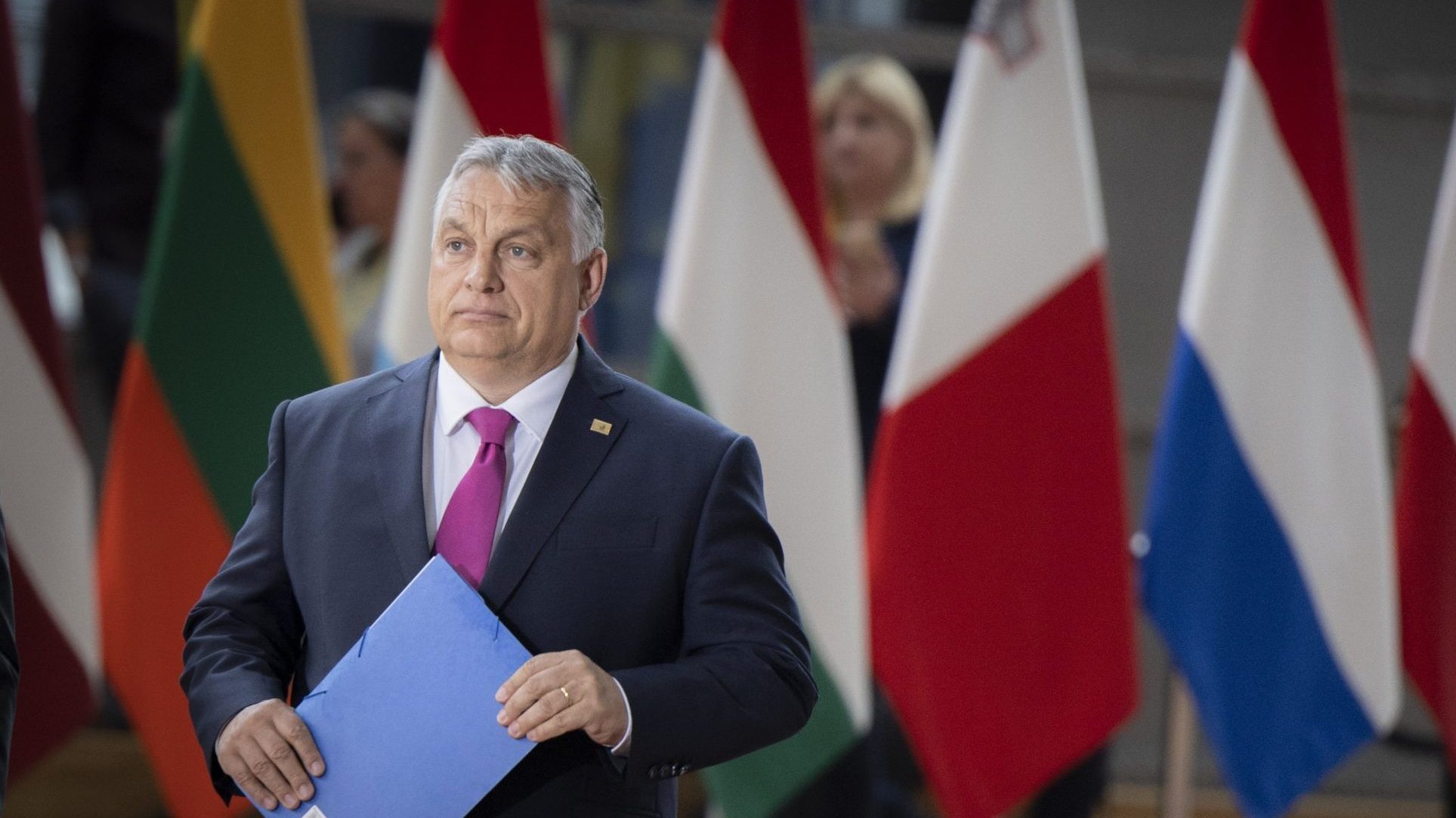
According to the Prime Minister, initiatives such as the introduction of a so-called “Spitzenkandidat” system – which appears nowhere in the founding treaties – show a desire to supress Member States’ rights and create a “United States of Europe”.
Mr. Orbán said that, in presenting itself as a political body, the European Commission has renounced the principle of neutrality. But this, he continued, is leading to the destruction of cooperation within the EU, because it institutionalises double standards: the Commission always acts in favour of larger Member States, to the detriment of smaller ones. He added that the system of European institutions has been shaken to its foundations by desertion of the principle of the “European Commission as the guardian of the treaties”.
The Prime Minister listed a number of instances in which larger Member States have gone unpunished. As an example, he recalled that the Commission should have imposed sanctions after an inadmissible French budget deficit, but that the President of the European Commission had justified the failure to do so by saying that “France is France”.
He stated that double standards have also been applied in the field of the judiciary. When in 2011–2012 Hungary set out to modernise its judicial system, it transformed administration in order to accelerate legal proceedings, and this involved compulsory retirement for judges over a certain age. The European Commission launched an infringement procedure related to this, and later court proceedings. When, however, a few years later a left-wing Italian government retired off older judges, he observed, “the Commission wholeheartedly welcomed the development as accelerating judicial procedures”. In this regard, he observed that “Clearly, Italy is Italy”.
Mr. Orbán went on to say that in its latest – and imminent – country report, the European Commission will question the legitimacy of Hungary’s judicial council. In doing so, he noted, it will “thereby be engaging in unprecedented interference in the Hungarian election campaign”. But the Commission “conveniently forgets”, he continued, that such bodies, functioning as additional guarantees, do not even exist in Germany or Austria: in those countries judges are appointed directly by the executive.
The Prime Minister added that EU institutions also felt no obligation to speak up when in Austria the most important civic right suffered “a disastrous blow”, with the country’s inability to conduct a valid presidential election.
Meanwhile, he observed, “on a monthly basis EU bodies adopt decisions on Hungary and Poland, citing the allegedly appalling state of the rule of law, the archive of the communist György Lukács, or Ahmed H”. He added that, because in some cases the Hungarian government does not hide its opinion regarding certain court rulings, now the European Commission is attacking it, “thereby joining in the Hungarian election campaign”.
If the Commission is truly concerned that no one should interfere with ongoing proceedings by stating their views, he asked why, for instance, it does not attack the European Parliament resolution which contains aggressive statements – amounting to interference – directed at Hungarian judges and Hungary in relation to an ongoing criminal case: the trial of Ahmed H.
The Prime Minister said that it is a fundamental expectation that the same rules should apply to all EU Member States: “Europe should once again be the Europe of common sense and fairness”.
He asked for respect to be shown to Hungary, but added that he expects the European Commission to continue attacking the Hungarian legal system and judiciary in the upcoming period.
To put things into perspective, he noted that while Hungarian law is built on one of the world’s richest traditions, the EU’s legal system is a continuously evolving legislative system which has barely fifty years of experience to rely on.
He went on to say that today national legal systems offer security and a guarantee – both for the independence of decisions, and the content of the law applied.
“We find it hard to contain our surprise”, Mr. Orbán continued, when the EU refers to its underdeveloped legal system to launch politically motivated attacks on a modern Hungarian legislative environment fully in keeping with contemporary developments and backed up by centuries of tradition.
He pointed out that the Member States have never transferred their control over the enforcement of the rule of law to EU institutions, and the latter only have powers in connection with upholding EU law.
The Prime Minister also spoke about the new constitution adopted in 2011: the Fundamental Law. He said that the Fundamental Law has set the directions, while the work carried out in subsequent years has created the legal rules acting as supporting pillars for the structure of the Hungarian legal system. Those implementing the law must evaluate the quality of the work completed and send feedback to the legislature on any revisions that may be necessary to improve quality, he said, but must not change the underlying principles.
In his view, there was a moral duty to use the legislative possibility inherent in the parliamentary supermajority which emerged in 2010.
Mr. Orbán summed up the significance of the Judicial Handbook by saying that it features the laws which guarantee the Hungarian nation’s sovereignty and independence.

